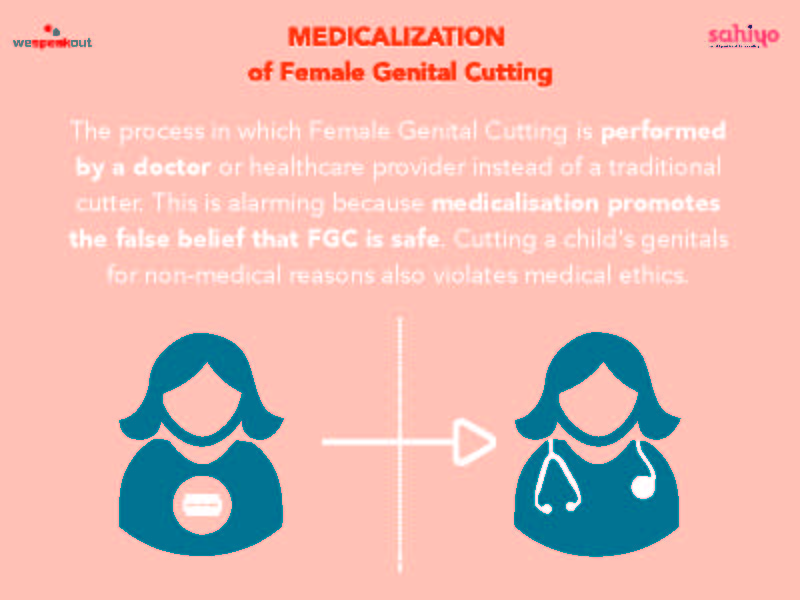A group of prominent medical bodies from five African nations have issued public statements in support of all programmes to end the practice of Female Genital Cutting and combat the medicalisation of the ritual. The statement was issued in the last week of September by the National Midwives Associations of Sudan and Djibouti, and representatives of several National Doctors Syndicates, Medical Councils and Associations from Egypt, Sudan, Yemen and Somalia.
These medical organisations issued the statement at Sharm el-Sheikh in Egypt, at a meeting on ‘The Role of Health-care Professionals in Combatting Female Genital Mutilation (FGM) in the Arab region’. The doctors and midwives expressed concerns about the growing medicalisation of FGM/C, a trend in which the procedure is increasingly being performed by medical practitioners in a clinical setting, rather than by untrained, traditional cutters. While medicalised FGM/C is believed to be more hygienic and less risky, it also promotes the false belief that the procedure is medically beneficial or acceptable.
In their statement, the medical organisations recognise the dangers of such medicalisation, the social and psychological impacts of FGM/C, and the fact that it is a violation of the rights of women and girls. In keeping with the ethics of medical practice, the statement pledges support to all national programs working to eradicate FGM/C. It also urges all governmental and non-governmental organizations to incorporate in their plans and programmes efforts to decrease the medicalisation of FGM/C.
Through this statement, the organisations have pledged to:
- Participate in community awareness programmes in order to raise awareness about the medical and social consequences of FGC.
- Make this information available in the mainstream, through continuous midwifery education programs for physicians, in order to prevent them from performing FGC and also engage with the community to raise awareness about it.
- Train midwives about laws and legislations against FGC and its medicalisation.
- Support the issuance of laws and make recommendations to the concerned authorities to penalize any healthcare professionals in their organisations if they are found to have performed FGC. The penalty could include cancellation of their licence to practice.
- Act as instrumental partners to all national and regional organisations, to share experiences and good practices in this work.
The organisations that have endorsed this statement include the Egyptian Doctors Syndicate, the Sudanese Medical Council and OBGYN Association, the Yemeni Health Office for Al-Hudydah and Health Office for Hadramout, the Somali Medical Association of the Federal Government of Somalia, the Association of Midwives of Djibouti and the Midwives Association of Sudan.
The public statement to end medicalization of FGC by various organizations and discussions and suggestions drawn at the meeting to reduce it will also play a role model for other countries to incorporate such programs in their own countries.
In India, the national medical community has not given much attention to the prevalence and practice of FGC among some communities. In August, after a Sahiyo investigative report that found FGC being practiced by some Sunni Muslim sects of Kerala, the state’s health minister ordered a probe into the matter and promised to take action against those found practicing FGC. The Kerala chapter of the Indian Medical Association also issued a press release taking a strong stance against FGC. The Association described the practice as “unscientific and against medical ethics”.
Earlier, in June, the national president of the Indian Medical Association told the Times of India that the IMA condemns the practice of FGC in all its forms, and would probe into any complaints of doctors promoting FGC.
However, Indian medical bodies are yet to make an official statement about FGC and its medicalisation, and Sahiyo urges the Indian medical sector to take a stand on FGC as soon as possible.

